Ruby Barnes's Blog
October 2, 2024
Ruby reviews White Butterfly by Saoirse Prendergast
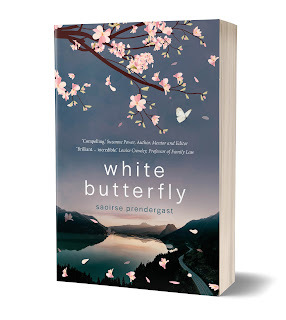
An extremely moving story of bereavement,coercive control and redemption.
You can’t get much morevulnerable than a young girl who believes she has failed to prevent a belovedparent’s death. WhiteButterfly’s depictionof a person who would then exploit such an innocent and damaged young woman is totallybelievable and at the same time someone you hope wouldn’t appear in real life –but they do. The media is more and more frequently reporting cases wherepartners have suffered long-term psychological abuse at the hands of theirloved ones. The insidious nature of the abuser’s method is creeping andhorrific. The bruises are on the inside. As a beacon of hope, society isbecoming more aware of these dangers and help is at hand for those who can seepast the gaslighting and take that extremely difficult step out of an abusiverelationship.
Spoiler alert! I have to disclosesome aspects of the story in order to express my opinions as a reader. If you’rehappy with that then read on. Else just read White Butterfly and liveSakura’s life.
Sakura, the main character, findsherself in just the situation I described above. After the birth of theirdaughter, things get even more difficult. Her partner, Chris, is older,handsome, confident, a successful businessman, in control of the finances, incontrol of everything. She’s young, innocent and totally vulnerable. He’s amasterclass in gaslighting, a term which I didn’t really fully understand untilI read this book.
As reader I came up for air whenSakura went to the women’s shelter. I was at the point of not being able totake any more of Chris, worrying that he would move on to physical abuse. Inthe shelter, Olivia’s support for Sakura is a lifebelt in a threatening sea ofdespair and it really is wonderful to see Sakura come through everything,gradually realising that not just she, but friends and family too, might and dostruggle to cope with how to handle a bereavement & abuse situation likethis. But the way the justice system subsequently treats Sakura in her legaldealings with the father of her child is effectively a form of institutionalabuse, and today’s society should reconsider the lack of compassion embedded inhow the courts operate and the strategies that the legal eagles employ.
The real awakening for Sakura herself is whenshe realises that, at some time in the future, she will come to appreciate /regret / be able to make use of / have to come to terms with something that ishappening in the now. Partly that’s her growing as a person, without thecoercion that has hindered her development. Mainly it’s the knowledge andwisdom imparted by those who help her, once she manages to escape Chris’sgrasp.
It was an eye-openerfor me to realise that friends and family of abuse victims might have troubleunderstanding and reconciling themselves to the abuse having occurred “on theirwatch.” They might then not be able to behave towards the victim in the best andrequired way for healing the situation. In hindsight, I’ve seen this in thefriends and family of separated couples in the real world. They often unwittinglyattach blame to the victim. Sakura finds herself not understood by those shethought were the good guys, and she can’t help but judge them for that, eventhough she understands why they’re behaving so. That’s her own fallible humannature. At the end of the day, this situation can have more than one victim. Ittakes some time for everyone to mature into the new world of freedom and tocast off the malign influence of the manipulative abuser.
I need togive special mention to Sakura’s love of horses, which is the anchor throughouther troubles. Tye, the stables owner, is a rock. The complete antithesis ofChris. Several times I thought Tye and Sakura might get together. In the futuremaybe, who knows?
One finaltakeaway for me from this book. In the cold light of day, when one partner in arelationship is stronger than the other – through age, experience, confidenceor character – the stronger person really needs to be aware of the situationand ensure that they don’t behave in a coercive manner. Generations gone byhave lived lifetimes being bent to the will of someone they believe loved them.Now it’s time for that to stop.
White Butterfly by Saoirse Prendergast is available on Amazon UK , dot com etc.June 28, 2022
Ruby reviews "Still Life" by Sarah Winman
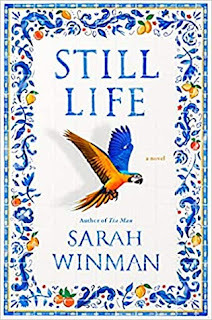
So here’s a title my wife’s book club had on the go and I grabbed it for a quick look. Still Lifeby Sarah Winman. On the face of it I shouldn’t like this novel – Mrs R’s book club tastes seldom coincide with mine, it talks a lot about classical art and seemed to be a bit of an epic – but Mrs R said try it and so I did.
What a great read. I was captivated from start to finish. Read the entire review here
April 5, 2021
Non, Je Ne Regrette Rien - Ruby Reviews The Midnight Library by Matt Haig
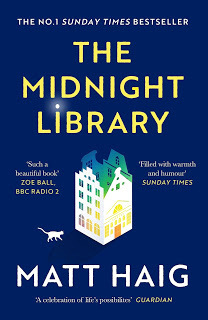
I was driving around Kilkenny when I heard a chap being interviewed on Ireland’s RTE Radio 1 about his latest novel. I couldn’t quite follow what the book was about but the British author seemed humbled by the runaway success of this latest book and was stoic about his writing career of more than twenty titles. I memorised the title of this latest book and the name of the author, determined to get hold of it at the first opportunity, also noting The Humans which one listener texted in as their favourite of Haig’s previous works.
A couple of days later I found myself Googling Midnight Rider by author xxx. As usual, I had only remembered one word – Midnight. After running for a while down a rabbit hole of early 70s rock music, I rediscovered the actual title and author. Then, breaking our house Covid-19 lockdown rules of ordering locally, I bought it on Amazon UK as it was amazingly cheap at £5.00. I told myself I wanted to test the post-Brexit function of importing goods from the UK to the EU, but it was really because I’m tight-fisted. While I was in mean mode, I added The Humans to the basket.
The first piece of good news is Brexit hasn’t impacted on Amazon UK book delivery in Ireland. Six days later the package arrived with no extra taxes or charges. The second piece of good news was the cover looked like a light and easy read. It turned out to be speculative fiction (yes, I discovered the term on the internet after reading) and was an enjoyable read. Unfortunately, Matt Haig’s style is so light and humorous that I devoured The Midnight Library in two days and was left wanting more. Like a delicious bottle of wine that you know you should savour but can’t help guzzling and regret not having made it last. And there we have it. Regret. That’s what The Midnight Library is all about, and the main character’s journey towards the title of this review. I won’t get any closer to a spoiler than that.
Parallel universes and alternative realities make for some good books, and this is one of them. Haig’s finger-light touch and gentle humour contrast strongly with other titles that my mind dredged up – Cloud Atlas by David Mitchell, The Time Traveler’s Wife by Audrey Niffenegger – but The Midnight Library compares very favourably. It allows audience participation. We all have regrets about decisions taken and not taken during our lives, those what if moments when our futures may have followed a very different path. The Midnight Library is all about this. In fact, The Midnight Library is solely about this.
Nora is the main character, whose viewpoint we follow throughout the book. My mind immediately cast the lead singer of the post-punk band Dry Cleaning in this role. With a hypnotic drone of self-obsessed streams of consciousness (“I've come to join your knitting circle … It's a Rio de Janiero bouncy ball … Why don't you want oven chips now?” – from Scratchcard Lanyard) and a touch of suggested depression, Dry Cleaning’s singer and Nora became inseparable in my mind. Anyway. Back to the regrets.
I regret not studying harder for my A-levels, but then I would probably not have met my (current) wife, had two beautiful children in Switzerland and ended up happy together in Ireland. I regret having married my first wife, but then probably wouldn’t have had my beautiful daughter from that marriage. I regret investing in Irish banks before the global financial crisis and losing the equivalent of a brand new family car in the crash, but then we probably would have invested in a second home and lost even more. This is how it goes. In an alternative or parallel reality, decisions changed lead to different outcomes. Nora, through a personal crisis, very quickly gets into an enviable position of being able to choose and experience these parallel universes and that’s the premise of The Midnight Library.
String theory and quantum physics, multiverses and all that, I don’t quite buy it myself. Perhaps it’s because I can’t grasp the concept. During the time of reading this book, we watched a film called Blinded by the Lightabout a Pakistani boy growing up in Luton, Bedfordshire, UK during the late 1980s. It fascinated me, as that was where I had grown up a decade earlier. I watched the characters in Luton Sixth Form College, and regretted not having gone there instead of the small sixth form of my Catholic school, where I well and truly screwed up my education, at least for a while. Regret is like a living dream with endless re-runs, some of them heart-breaking and others trite. Why didn’t I stay in closer contact with my good friend Pino in Switzerland, only finding out on facebook that he had inexplicably passed away? Why didn’t I keep my mouth shut outside that pub in Luton (where I subsequently met my first wife) and avoid getting my front tooth knocked out and having a bridging crown at the front of my mouth for the rest of my life? I don’t believe there are multiverses, alternative realities existing where I and everyone else have made an infinity of different decisions. But it’s sometimes a good use of time to muse upon them. Because then we retrospectively appreciate our mistakes and can give ourselves credit for the good decisions we’ve made and the luck we have enjoyed.
The Midnight Library is a quick and easy read. Haig’s style is light and entertaining, although often dealing with heavy subjects. At no point did I want to put this book down because I’d had enough. In fact, I would happily have read an infinite number of pages of further alternative futures for Nora. Like one of the other travellers Nora meets, I think I might happily continue to slide between lives. The emotional vertigo that Nora experiences when she lands in the midst of an alternative reality is handled very well by the author, and I wonder if I could really cope with that.
No, I don’t regret anything. I’m going to stay in this life I have.
March 18, 2021
Ruby Reviews The Making of a Detective by Pat Marry
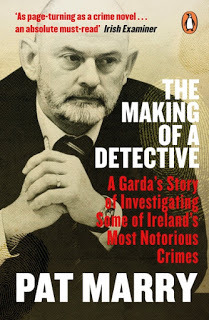
True crime is a difficult genre to nail. A myriad of TV series and films attempt to rehash old crimes, using alleged expert talking heads and corny-voiced narrators to try and squeeze out entertainment from old material without any real insight. The viewer’s appetite is usually left unsated. The same is often the case with true crime in print. An author might gather together a number of similar historical crimes and then, based on research, attempt to serve them up as fresh. In other cases, a memoir can turn out to be disappointingly free of detail from actual cases and more focussed on the introspective views of the author. In the latter case, it is the memoir author’s prerogative to avoid sensationalism if they choose to do so, but it might not delivery the blood and guts a hungry reader thirsts for. Pat Marry’s The Making of a Detective - A Garda's Story of Investigating Some of Ireland's Most Notorious Crimes is a rare book in that it delivers unique insight, juicy true crime case discussion and enough life history to bring the author’s experience and character to the fore.
What often struck me when reading The Making of a Detective was how well it is written. The pace and depth of content are well-balanced. Marry does seem a bit of a strange and quirky character. I can imagine most of the Gardaí who worked with him during his thirty year policing career in Ireland would have polarised opinions about him. Methodical, determined, analytical, a constant learner. I wouldn’t be surprised to hear he has OCD or similar. The man’s portrait is very effectively painted.
A frequent problem with true crime books is repetition. The TV series are terrible in this respect, assuming their viewers have such a short span of attention that there must be a recap after each ad break. Other true crime / crime sector memoir books I have read often cause me to flick back through the pages, trying to substantiate an apparent contradiction, to find where else the story has been half-told in an earlier chapter. The Making of a Detectiveavoids this. In my opinion, this is because Marry used a very skilled ghost writer to pen his book. He even goes so far as to thank and name her, Rachel Pierce, in the Acknowledgements. Even stranger, the Acknowledgments at the end of the book, a section which I usually skim or ignore, is interesting for its content as a standalone chapter.
The Making of a Detective has a strong structure, each chapter dealing with a different perspective on crime. Marry talks about The Dead Body Effect, A Disarming Killer, The devil is in the Detail and so on. These would make good titles for different episodes of a TV series. He reveals fascinating detail of police procedures, advances in forensics, the psychology of crime, and other matters, always referenced to real life cases in Ireland. Most of these cases are murders and Marry has had close involvement with many high profile Irish murder cases, which obviously helps. The reader is left with an impression that Marry is an effective detective who, once on the trail of a perpetrator, is likely to get his wo/man.
As a crime author living in Ireland, the real reason I chose this book was in the hope of gaining further insight of Irish crime detection procedural matters. The Making of a Detective didn’t disappoint on this count either. Marry’s career has brought him from the pre-DNA wilderness years to a current forensic environment which is highly hostile to the perpetrator. If the authorities have a suspect in the frame then it is increasingly difficult for them not to have left incriminating evidence.
If I have one criticism of this book, it is the lack of an index. I know it’s not a text book but there are so many interesting and useful references to aspects of crime that I wish I had labelled the pages while reading. So off I go now, to re-read The Making of a Detective.
February 5, 2021
Ruby Reviews Elmet by Fiona Mozley
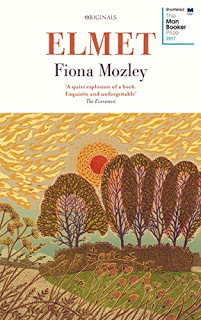
The pandemic has led to excessive home consumption of many things. In our house it’s books (well, maybe one or two other things as well, but we did manage a dry January). I’ve been gorging on crime fiction series and particularly Michael Connolly’s Harry Bosch books, read in order. Last week I had to stop myself and consume something else. On the top bookshelf I found an abandoned cast-off from a friend who every couple of years buys a bunch of books with good intentions, never reads them and gives them away. It was Elmet by Fiona Mozley.
Mrs R had started and given up with Elmet. That can be both a good and a bad sign. Bad if she’s given up because a book is poorly written, good if she’s stopped reading because it’s weird. I like weird.
Elmet is weird. I didn’t like the book title – it reminded me of a popular brand of ladies’ hairspray. (I don’t use hairspray, honest.) I didn’t like the cover – it looked too literary or something. Having now read Elmet, I like the title and the cover, because they remind me of the book’s world. Don’t get me wrong, Elmet isn’t a fantasy world. It’s more Wasp Factory than fantasy, except it has no wasps and no (Wasp Factory spoiler) mutilation of private parts. There is some mutilation though. Patrick McGrath’s Spider also springs to mind.
The title is almost coincidental as the ancient kingdom of Elmet is barely referenced. It does indicate that the family at the centre of the story lives in their own world, on the fringe of regular society and by their own rules. The seven foot tall Daddy figure is a prize fighter moving through an unorthodox life of financial reward for controlled violence, a strong personal code and immense love for his two children. Think Tyson Fury but without modern appliances. This is an underworld of ne’er do wells, the trials and tribulations of the underprivileged, and the abuse of power by the privileged who reign over their vassals as modern day kings. The main villain is named Mr Price (which has humorous connotations here in Ireland as it’s the name of a discount retail chain, but that can’t be helped).
Daddy’s teenage son Daniel is the narrative voice and there are occasional flashes forward as the now itinerant Daniel wanders the land, looking for his absent sister Cathy. There has clearly been some kind of happening leading to this and the main story describes that. The author’s touch is light enough that it doesn’t disturb the reading.
I once knew (online) a British Gypsy (and he would have described himself as such) who had won his west country cottage and land in a fist fight in a pub car park. He lived in a world of cash and his own society’s rules, and died tragically young. The world of Elmet does exist, albeit the setting for the book is north east England. Apart from the narrative telling us so, the dialogue is skilfully localised, again without disturbing the reading. I would say, though, there are some extensive stretches of dialogue where the speaker’s words start to read and sound like narrative. That would be my only criticism.
Fiona Mozley paints the world of Daddy, Daniel and Cathy in vivid colours. I lived for two days in their house in the woods, emerging occasionally into the day and night reality of the masked Covid world, feeling like an outsider and desperate to get back into Elmet. Mozley manages to bring everything alive without making me wish I knew more about types of plants and trees, which is usually the problem when an author goes all green on you. The characters are also fully alive and distinct. Daddy, Daniel and Cathy are three very different peas from the same pod. They are each interesting individuals in different ways. The life they choose to live is very different to most people but they have to interact with society and its issues of poverty, substance abuse, crime and mental health. Elmet is one of those books I regretted finishing. A strange kind of escapism that, for a couple of days at least, made me vow to resume my life as a fighter (I was never very good), to arm my household against villains (no arms available, no villains in sight) and to fully enjoy everything the natural world has to offer (within a 5km radius of my home for exercise purposes only). Highly recommended.
January 29, 2021
Meat as a source of Zombification
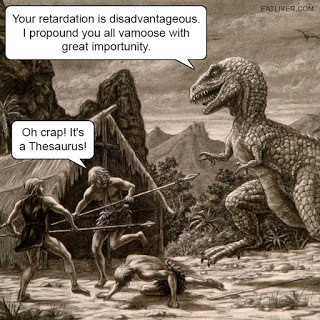
The idea first came to me in a pub in Kilkenny. After a pint or several in Bridie’s Bar and General Store, we martial arts types were swapping war stories about previous jobs when Sean the ginger ninja (name cleverly disguised to protect the innocent) started to talk about his time in the local abattoir.… Continue reading
January 27, 2021
Genesis of Zombies
Where did they come from, these zombies that plague us here on the Western edge of Europe? Was Brexit any kind of a cure? The R.A. Barnes zombie series is based upon scientific fact (honest) and personal experience (double honest). Trust me, I'm a doctor. To better understand the rise of Ireland's zombies - where and why they came about, the science behind their genesis, how they breed, why they eat meat from birth and their preference for sausages - I'm sharing a series of informative posts on my Ruby Barnes Books website. Starting with why the katana (Japanese Samurai sword) is the ideal zombie apocalypse weapon
Meanwhile, back in the land of normality, this blogspot will mostly be sharing Ruby's reviews of books of all genres, recently read.
October 2, 2020
Ruby Reviews The Color Purple by Alice Walker
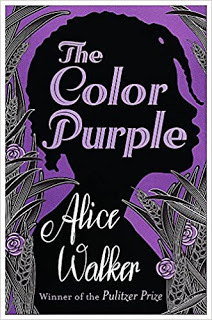
2020, a year of many facets, many colours, many seasons. Covid-19 lockdown caused a reading frenzy in our house – online ordering (even from the local bookshop), the excitement of packages arriving every few days, author series collections reaching completeness on the bookshelves, stacked double deep. With the writing of a couple of crime fiction novels in progress, I mostly concentrated on the Connollys (John and Michael of Bosch and Charlie Parker fame, or is it the other way round, I can never remember) and the Rebus novels by Ian Rankin. I started with the first and worked my way through, noticing the style changes as the author developed and found their stride (more about that another time).
Eventually the new title well ran dry, lockdown eased and the spending had to stop. So I turned to the bookshelves and considered novels I had read before. Something less plot-oriented. John Irving perhaps? Mrs R thrust The Color Purpleinto my hand. ‘Read this, it’s topical,’ she said. Well, I’m as liberal as the next nearly sixty-year-old white European, but I didn’t want my reading trend influenced by world events. I like being in my own little bubble. But purple, now purple is my favourite colour.
I put off the task and read The Water Method Man by John Irving. I couldn’t believe that book was nearly as old as Mrs R. Meanwhile, The Color Purple mysteriously migrated upstairs and onto my bedside table. It seemed it was mandatory. With trepidation, feelings of right-on with BLM and a medium to strong dislike of Whoopi Goldberg, I began to read. First written in 1983, this was the 2017 edition. It started with a letter by the author explaining how she had some issues with the 1985 film, how it failed to get across some of the characters and the story. “Thank the Goddess there is a book,” she said. I was liking Alice Walker already.
There are two things about the written style of The Color Purple that would generally put me off. The first is it’s written entirely in the form of letters by the narrator to God, to the narrator’s sister and occasional by the sister back to the narrator. This raises various point-of-view challenges and requires reported speech to avoid a monologue. The other key point is the narrative is written in a vernacular language aiming to replicate the black deep south in the early twentieth century. Normally, I find even a few passages of a character speaking in the vernacular to be tiresome and it’s not an easy feat for an author to pull off. For these two reasons I did hesitate with the first few chapters, but the main character Celie soon had my interest and I was there, fighting her corner against adversity.
This novel isn’t, in the main, about racism. There are occasions when the extreme early twentieth century prejudice against people of colour in the U.S.A. and the issue of white privilege arise, particular in the case of what happens to a particularly strong character named Sofia. What this book is about is the abuse of power by one individual over another and the sexual stereotypes from which people struggle to break free. Celie, the main character and most times narrator, suffers abuse in just about every way possible. Her father figure commits three atrocities in short order by fathering her children, giving those children away and then committing Celie to a loveless, forlorn marriage. This is no spoiler, as it’s already plain to read on the book’s back cover, but it sets the tone for what Celie must endure.
Celie isn’t the only character who has to deal with adversity. Almost everyone is touched by physical abuse, deprivation and infidelity. Most all both commit and are victims of these actions. Celie’s own assertion to her stepson that he should beat obedience into his new wife is a causal factor in the twisted track that Harpo’s and Sofia’s lives follow. Yet through it all, there is a tone of optimism. When someone decides they have had enough, they somehow find the strength and courage to walk away. This is mixed with a strange permissiveness in the society of these characters who accept that wives and husbands may come and go, and that a wife forced into a loveless marriage may in fact prefer a woman as bed companion. At no point does the intolerance of behaviour lead to a point of no return. How realistic this is I cannot say, but it does serve to avoid total tragedy.
The Color Purple takes the reader through the seasons of life in a society that differs enormously to today. It commences perhaps a hundred years ago and the refreshing lack of modernity allows the reader to focus on the characters. Alice Walker fully fleshes out each actor and they are as real to me as if it were a filmed documentary. The book is full of love – unrequited, realised, denied, surprising, enduring, everyone gets a dose at some point. I saw each person suffer their trials of life and emerge a sometimes very changed person. At no point did this challenge belief and that’s a testament to Walker’s skill as a writer. The two points I mentioned above, about the use of letters for narrative and vernacular language, are very skilfully executed. I have no idea of the authenticity of the language but rarely did I have any problem understanding what the characters wrote or said. It feels very real, just like the way a person without good education will write a letter, using the same slang and mispronunciation as their spoken words. The point-of-view, timeline and tenses, and monologue challenges of communicating an entire novel by letters were all handled masterfully. Only now, writing this review, do I understand just what a great novel this is, and I’m so glad to have read it again.
2nd October 2020
July 7, 2019
Ruby Reviews 4 3 2 1 by Paul Auster
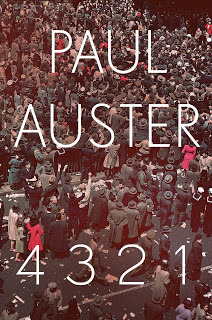
A few months ago a friend gifted us a couple of books. She’s not a regular reader and thought she ought to try and be one, so she had bought some Booker Prize shortlisted titles in hardback. It may have been a New Year’s resolution or something, and like so many of those it fizzled out pretty quickly. Lincoln in the Bardo by George Saunders and 4 3 2 1 by Paul Auster subsequently appeared on our shelf. I was just coming off a strict diet of John Connolly’s Charlie Parker novels, by way of style research (did I mention I have a new Ger Mayes crime novel coming out myself soon?) and thought a bit of highbrow reading was in order, after all of Parker’s killing and mayhem. However, Lincoln in the Bardo defeated me within the first dozen pages. Clever as the delivery method might be in that book, I couldn’t stomach it. So I turned to the huge 4 3 2 1 by Paul Auster.
Inside the front of the hardback jacket cover, 4 3 2 1 lets the reader know what they’re taking on. Archie Ferguson is the MC and the book follows four alternative life paths from 1947 through to the late 1960s. Chapters are numbered 1.1, 1.2, 1.3, 1.4 and so on to signify which of the four Fergusons are on call and the initial 1.0 sets the background with the Russian émigré Jewish grandfather, his son Stanley and Ferguson’s mother, Rose. The parental characters also develop different life paths and are a constant feature of the book through flashback and forward. As a reader, I’m not a strong advocate of too much flashback and I dislike foreshadowing, but the author manages to use both techniques without being too invasive. Even when the certain death of some characters is foreshadowed, Auster somehow acquires the reader’s permission to do so. Perhaps that is because, knowing an individual is about to be killed off in life path A, the reader rests assured that the same individual is likely to endure in life path B, C or D. The discomfort of losing a character to which the reader has built an attachment is diminished, as they’re only one part dead.
I had thought it would be difficult to follow the four separate life paths of Ferguson. There were a few times when I wasn’t quite sure if I was in 1, 2, 3 or 4, but I didn’t succumb to the temptation of turning back to previous chapters. Instead, I trusted the author to provide enough clues and hooks to keep me on track, and Auster manages that well. As a reader, it was an enjoyable experience. As an author, I wondered how much technical work had gone into writing the book. Did he write four different 250 page novels? Did he plot all the details and timelines in advance? Were checks made to ensure the reader would intuitively know which of the four life paths were being read?
Paul Auster’s style put me in mind of John Irving, albeit with less acerbic wit. Auster’s coming of age story is threaded through with the emotional and physical rollercoasters that the first quarter-century of a life might contain. Love, abuse, disaster, romance, tragedy, sex, crime, friendship, racism, violence, success, failure, in all their shapes and colours. With Irving, the MC’s life story sometimes takes a route other than that which the reader might have preferred. With Auster’s 4 3 2 1 there is a choice of routes. The reader isn’t trapped in lengthy observation of a single trajectory. I could have eaten a little more humour than 4 3 2 1 contained, but that’s just a matter of taste. The twist in the tail, however, is quite deliciously logical.
March 12, 2019
Ruby reviews Fire and Fury ��� Inside the Trump White House by Michael Wolff
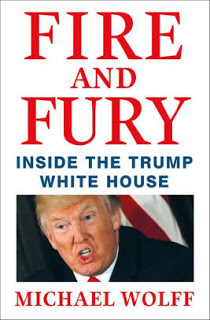
It would take a special kind of secluded living not to know that Donald Trump has been in the role of President of the United States of America since January 2017. He���s the media���s villain and the media���s darling, depending upon the media. Notoriety is generally more newsworthy than being a hero and so most of the Trump stories we hear in Europe are disparaging. But where does the truth lie?
News media tend to have a bias. If your personal tendency is right-wing then you are likely to follow certain news sources that reinforce your world view. If you���re more left-wing then another list of media outlets will be more to your taste. Sometimes people sample the news via channels they don���t respect or believe, just to get a bit of spice thrown into the mix. Social media can broaden people���s news church but it can also narrow it. Facebook, in particular, will serve up newsfeeds from individuals��� newsfeeds and pages that are matched by algorithms to your own friends list, pages you have visited etc. The risk is that people end up preaching to the choir, or end up in the choir being preached to, and only one perspective gets presented. These days a lot of folk get their news from social media and believe what they see. The problem is this may sometimes be ��� yes, a phrase that is synonymous with the Trump presidency ��� fake news.
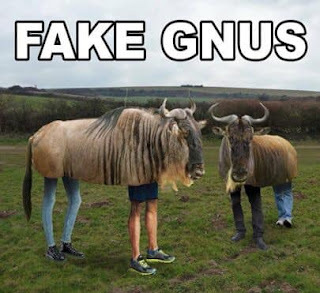 Social media is full of fake news these days. Was that always the case? It seems I can���t remember when it wasn���t. As an author, I don���t take a strong political or idealistic stance (perhaps sometimes I should). I have a wide circle of facebook friends and this gives me a broad perspective when it comes to viewpoints, both politically and geographically. I read stuff that makes me groan, other things that make me laugh, and content that makes me think further, wondering if it���s fake. Rarely do I unfriend, unfollow or block someone on social media. Also I don���t engage in political or idealistic online conversation. (I lurk and throw in the occasional one-liner with hopefully comic effect. But I take it all in, I see human nature in the raw and absorb what I see to help fuel my writer���s imagination.) When I see something outrageous, I fact check. Almost invariably, regardless of the viewpoint, it���s either fake news, taken out of context or only partially true.
Social media is full of fake news these days. Was that always the case? It seems I can���t remember when it wasn���t. As an author, I don���t take a strong political or idealistic stance (perhaps sometimes I should). I have a wide circle of facebook friends and this gives me a broad perspective when it comes to viewpoints, both politically and geographically. I read stuff that makes me groan, other things that make me laugh, and content that makes me think further, wondering if it���s fake. Rarely do I unfriend, unfollow or block someone on social media. Also I don���t engage in political or idealistic online conversation. (I lurk and throw in the occasional one-liner with hopefully comic effect. But I take it all in, I see human nature in the raw and absorb what I see to help fuel my writer���s imagination.) When I see something outrageous, I fact check. Almost invariably, regardless of the viewpoint, it���s either fake news, taken out of context or only partially true. In the run up to Trump���s election, and since his inauguration, fake political news has been crashing through social media like a hailstorm. It���s bewildering. As a larger-than-life character, Donald Trump is a soft target for cheap ridicule. Mocking him for his creative hairstyle or those strangely small hands is just being mean. His oratory style and tendency towards hyperbole are not what a lot of people typically expect from a POTUS, but he doesn���t claim or want to be a typical POTUS. He wants to shake things up. According to The Guardian UK newspaper, he had made 7,645 false or misleading claims since taking office, sometimes more than 100 in one day. How could this possibly be the case? Surely a Head of State has to be taken at his/her word and any untruths would be a cause for grave concern?
The peculiarity of the Trump presidency is perplexing to us Europeans, over in these staid old countries where one bold-faced lie can bring down a leader or even a government. Just 12 hours ago, Trump tweeted a quote from One America News - ���There���s not one shred of evidence that President Trump has done anything wrong.���How did the world become a place where the president of a huge and powerful nation feels he needs to share those words? 24 hours ago Trump tweetedDespite the most hostile and corrupt media in the history of American politics, the Trump Administration has accomplished more in its first two years than any other Administration. A quick Google search on this topic produced an interesting article from the UK���s BBC, which suggests that there were some areas where the Trump administration has exceeded the results of previous ones. However, rate of turnover amongst senior level advisors and length of government shutdown due to funding are probably not the medals he���s looking for. But hey, we know he doesn���t really believe what he himself is saying, except in the moment. He���s just trumpet blowing, like the childhood rhyme of dominance ��� I���m the king of the castle, and you���re the dirty rascal.
So what is the truth? What���s going on? Normally I would raise my hands (in Trump fashion) and say look, America is a very different society to ours. All countries have their problems, often depending on complex historical factors. In little old Ireland, where I live as an ex-pat Brit, we have very few deaths due to firearms, there isn���t an opioid crisis and racism is more subtle than skin tone. How can we begin to understand life across the pond? Leave the USA alone. If they want Trump (and the majority of voters, by whatever rules in play, must have chosen his team) then let us just enjoy the spectacle and see what results. But then, while trying to use up a spare half hour waiting for a train in Dublin���s Heuston Station, I stumbled over a copy of Fire and Fury. I rarely read non-fiction but something made me pick it up. Perhaps reading this would make things clearer?
The surprising thing about Fire and Fury was that there was nothing surprising in it, when it came to a catalogue of White House events. From stories of the Trump campaign trail, the rousing calls of the candidate at mega-rallies, the tumultuous early days of the presidency, and the myriad well-heeled individuals who made cameo White House appearances before being sacked or resigning ��� everything was familiar. When Wolff quoted such a person or an anonymous source as having said or done something, I knew it already. This wasn���t because I was late to the party ��� I had bought the paperback a year after the hardback was first released. It was because the world, through global media, had lived through all this.
Wolff tells a story of a latter-day Game of Thrones, with the houses of Trump, Bannon and Priebus battling for ascendancy. GoT with a twist, because none of the main cast has any real gladiatorial experience in the Washington colosseum. White Walkers, Wildlings, the Night���s Watch, noble dynasties, Viking types, warrior queens, mean-looking lads on horses, all waving their weapons and circling each other, with one eye on the media scavengers who sniff for carrion. The chaos proves too much for some would-be warriors who leave the field after their first blood wounds. New heroes then arise, only to have their skulls ceremoniously crushed by dominant champions. The Princess summons her dragon to breathe fire upon the weakened in-house foes, but we know the dragon will eventually take his own flight. Once I finished the book, I had to google the characters��� real-life names and find out what happened in the sequel. Sure enough, the outsider victors of the Wolff story have all since succumbed to their fate, Trump blood and marriage being the only certain protection against treachery and spells.
Critics have said that Wolff played with the facts on occasion. One reviewer criticised him for using the device of unreliable narrator (although I���m not sure that review really properly explained the method) but surely that���s the whole point of the story. Everyone in the organisation has a different world view, and many live in their own reality. Some (albeit not many) see themselves as following their great leader. Others endeavour to mollify his excesses. Another plays the role of guru. The big man himself just wants to be loved and plays fast and loose with any material at hand to achieve that end.
This book has, however, had an unexpected effect upon me. I am no longer surprised or appalled by anything that Donald Trump says or does. If I look at his historical tweets I just say yeah, that���s him, or no, I think someone else wrote that one. Fire and Fury has numbed me to the unfiltered thoughts of the current POTUS. I find myself able to step back and wonder if what he does and says will really have any impact upon my little world. Bearing in mind that the House of Representatives shifted control to the Democrats after the recent mid-terms (which, of course, very often happens during a US presidency), Donald Trump is going to have increasing difficulty implementing his campaign promises. Until next time.



